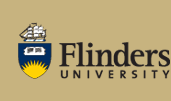
The Master of Health and International Development is a 72-unit program offered by the Faculty of Health Sciences and the Faculty of Social and Behavioural Sciences.
Basic level entry requires the completion of 72 units of work and is normally available to applicants who hold an approved degree or equivalent from an approved tertiary institution.
Progressive level entry requires the completion of 54 units of work. Up to 18 units of credit will be awarded to applicants who:
Advanced level entry requires the completion of 36 units of work. Up to 36 units of credit will be awarded to applicants who have:
Demonstrated excellence in practice will include any combination of the following appropriate to the field:
The course aims to provide students with:
Graduates will have:
To qualify for the Master of Health and International Development, a student must complete 72 units with a grade of P or NGP or better in each topic, according to the program of study below.
Not all topics are necessarily available in a given year.
All students must complete the following five core topics.
DVST8010 Development Problems, Policies and Programs (4.5 units)
DVST9029 Gender, Public Health and International Development (4.5 units)
PHCA8501 Social Determinants of Health and Well Being (9 units)
PHCA8505 Primary Health Care Practice in Developing Countries (9 units)
PHCA8509 Public Health Practice Development (9 units)
DVST9022 Theory and Evidence in Contemporary Development (4.5 units)
DVST9031 Gender Analysis (4.5 units)
DVST9032 Gender Mainstreaming (4.5 units)
PHCA8502 Qualitative Research Methods (9 units)
PHCA8503 Research Methods for Social Epidemiology (9 units)
PHCA8504 Social Determinants of Indigenous Health (9 units)
PHCA8506 Program Planning and Evaluation in Public Health (9 units)
PHCA8507 Health Promotion in Public Health (4.5 units)
PHCA8518 Food Democracy for Public Health Practice (4.5 units)
PHCA8510 Leadership and the New Public Health (4.5 units)
PHCA8511 Social Statistics in Public Health (9 units)
POAD9026 Management in Non-Government Organisations (4.5 units)
PPHR9701 Population Studies (4.5 units)
PPHR9722 Equity and Human Resource Development - Health/Nutrition and Education (4.5 units)
PPHR9732 Equity and Human Resource Development - Labour Force (4.5 units)
PPHR9741 Women&##39;s Health and Child Survival (4.5 units)
With the permission of the course coordinator, students maybe permitted to undertake other appropriate topics as electives.
Except with permission of the Faculty Board:
The award of a grade of Fail (F) in 18 units or more topics, or the award of a grade of Fail (F) in the same topic on more than one occasion, may constitute prima facie evidence of unsatisfactory progress for the purposes of the University&##39;s Policy on Student Progress.
CRICOS Provider: 00114A | Updated: 20 Jun, 2011